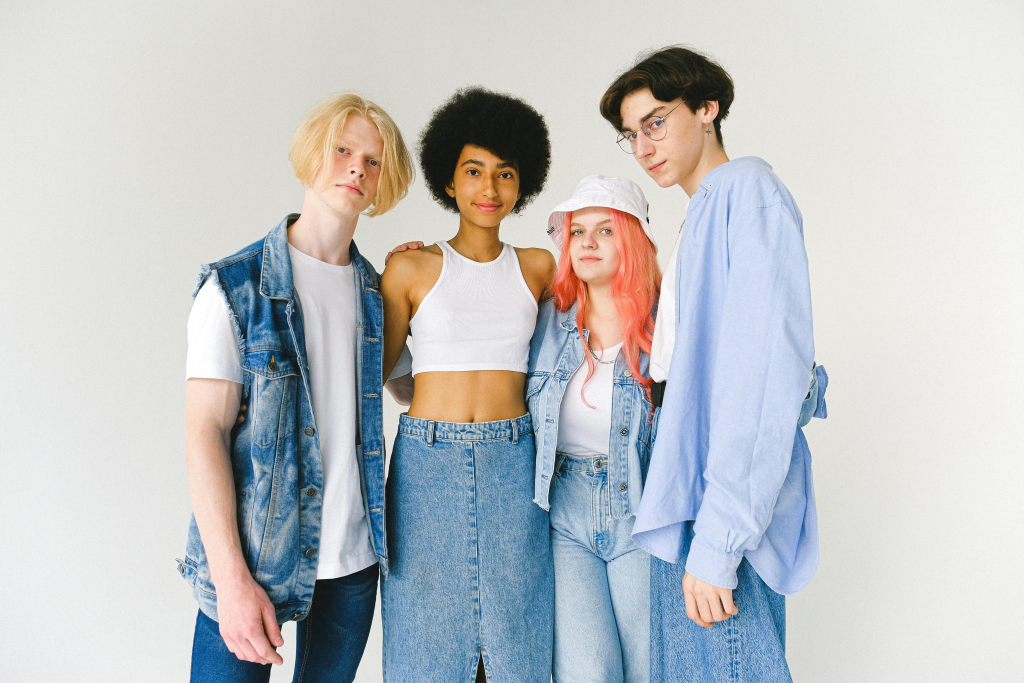
What if the very behaviors that older generations thought were “normal” are precisely what’s keeping society stagnant? For Gen Z, that’s not speculation it’s their everyday reality they’re working to upend. From climate apathy to traditional career aspirations, they’re throwing out the old rulebook and writing a new one that’s more equitable, resilient, and harmonized.

This is not simply teenage rebellion. It’s a pragmatic, value-based change rooted in lived experience and world awareness. They’ve become adults to the accompaniment of climate headlines, economic uncertainty, and cultural reckoning on repeat. And rather than shrugging, they’re demanding change in the way we work, shop, talk, and even think. Here are seven of the most influential norms Gen Z is eager to retire, and what’s taking their place.

1. Treating Mental Health As a Taboo
Mental health is no side discussion for Gen Z no way. With 42% facing depression issues and 61% with anxiety, as reported by Harmony Healthcare IT, they’ve made therapy, peer support, and open discussions norm. Patrick Griswold of Metropolitan State University of Denver says, “The stigma around mental-health struggles has significantly decreased because it’s harder to stigmatize something that’s so widespread.”
They’re also redefining care in a social-justice context, acknowledging that structural inequities ranging from racism to economic isolation influence mental health. This involves pushing for culturally aware therapists, elastic access such as telehealth, and community care models where care is mutual, not isolative.

2. Fast Fashion Without Accountability
Though they’ve been referred to as the “sustainability generation,” Gen Z’s relationship with fashion is complicated. Sure, 62% want to shop from sustainable brands and 73% will spend extra on eco-friendly items, but Shein’s 2024 revenue of $32.5 billion is still too tempting for many. This is the oft-documented attitude–behaviour gap.
Rather than shaming, the emphasis is on solutions: circular fashion, thrifting, and resale sites such as Depop and ThredUp. Berlin and Nairobi Fashion Weeks are now featuring eco-friendly brands, demonstrating that style and sustainability can be on the same runway. The message? Ethical fashion must be as accessible and trend-driven as its fast-fashion equivalent.

3. Dismissing Safe Spaces
Safe spaces are not only physical spaces they’re emotional and mental spaces. Gen Z cares about environments, both online and offline, where individuals can be themselves without fear of harm or mockery. This is from a more general commitment to psychological safety and inclusivity, particularly towards marginalized communities.
Criticizers might view them as babying, but for Gen Z, they’re a means of building true conversation and creativity. In shielding vulnerability, safe spaces allow more voices to be heard and that’s a plus for any community.

4. Downplaying Climate Change
Climate change isn’t a theoretical future concern for Gen Z it’s their lived experience. Surveys indicate 64% would give climate action priority today, even if that means taking away from other causes. Almost half say they feel personally impacted, and 69% of Gen Z social media users indicate climate content makes them worry about the future.
But that fear drives action. They’re organizing protests, rallying for green energy, and adopting low-carbon lifestyles. As Greta Thunberg and millions of youth activists have demonstrated, they’re not asking for permission to call for systemic change they’re constructing movements that combine street activism with online extension.

5. Making Fun of Non-Binary Pronouns
Gen Z is the first generation in the United States in which a majority thinks there is more than two genders. Knowledge of non-binary identity is virtually universal among them, and sharing pronouns is to them a matter of basic courtesy. As Rain Ashley Preece, a trans man who uses he/they pronouns, explained “People may feel like they are both, neither or a bit of one or the other.”
This isn’t about trends it’s about ending oppressive gender norms. By making inclusive language mainstream, they’re making it less difficult for anyone to share their identity without being the “first” to do so.

6. Worshipping Hustle Culture
The old mantra of “sleep when you’re dead” is losing its shine. Gen Z is redefining ambition to include rest, balance, and mental health. Research shows they value work-life balance over career advancement, and many are even seeking long-term roles with a single employer to avoid the burnout of constant job-hopping.
As one study observes, the hustle has been “outed as a scam,” providing less security and fewer perks than advertised. In its stead, they’re crafting careers for meaning, adaptability, and dignity without jeopardizing their well-being.

7. Assuming College Is the Only Path
With more than a million alternative credentials now up for grabs, from industry certifications to apprenticeships, Gen Z is expanding the definition of success. Almost three-quarters say easier access to career information would aid them in finding their way, and employers are more willing than ever to take on non-degree hires.
States like Indiana are even embedding career exploration into middle and high school curricula, ensuring students can connect their talents to real-world opportunities early. The takeaway? A four-year degree is just one of many valid routes to a fulfilling, well-paid career.

Gen Z’s resistance isn’t about turning against tradition for its own sake it’s about redefining the rules to suit the realities of today and the promises of tomorrow. By questioning old norms on mental health, environmentalism, identity, work, and education, they’re not only defining their own futures they’re creating a new norm for what a healthy, just society can look like.


